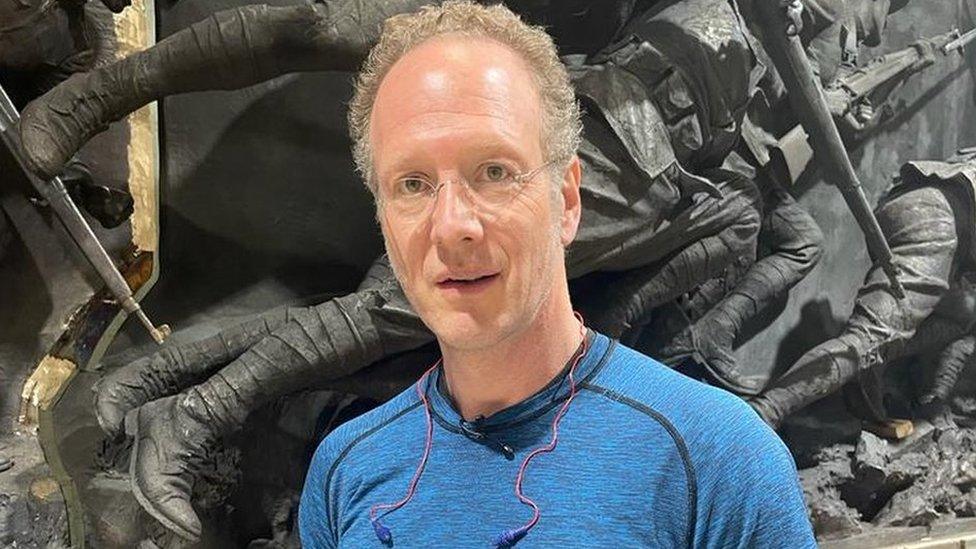Gloucestershire foundry completes WW1 memorial for US
- Published
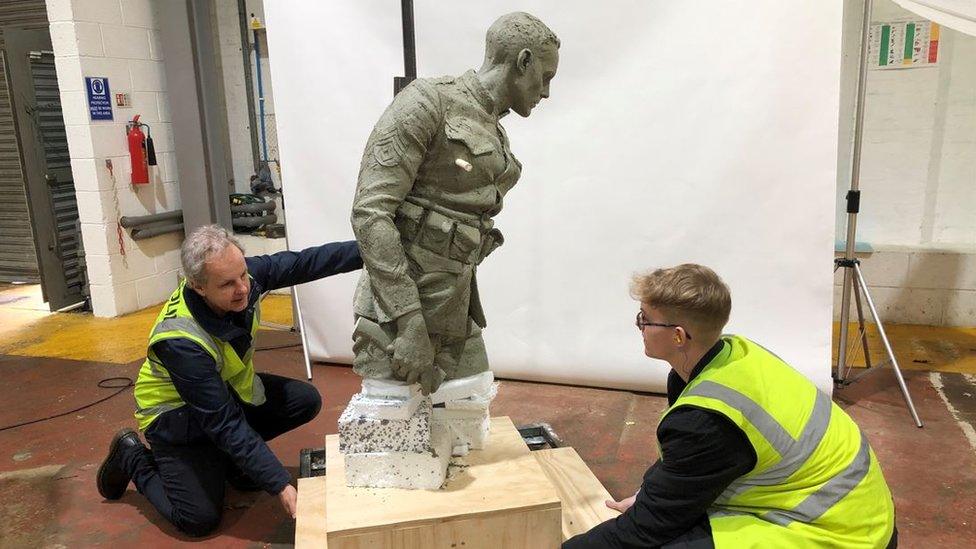
The vast sculpture required a complicated process which took artists a decade to complete
The final piece of America's first national memorial to US servicemen killed in World War One is being bronzed at a foundry in Gloucestershire.
American sculptor Sabin Howard and the Pangolin Foundry in Stroud have taken 10 years to create the life-size battle scene.
The 25 tonne bronze depicts 38 figures.
The sculpture is to be installed near the White House in Washington, with an unveiling in the autumn.
The memorial captures the freeze frame of a poignant narrative, following a soldier who was drafted for war and must leave his wife and daughter behind.
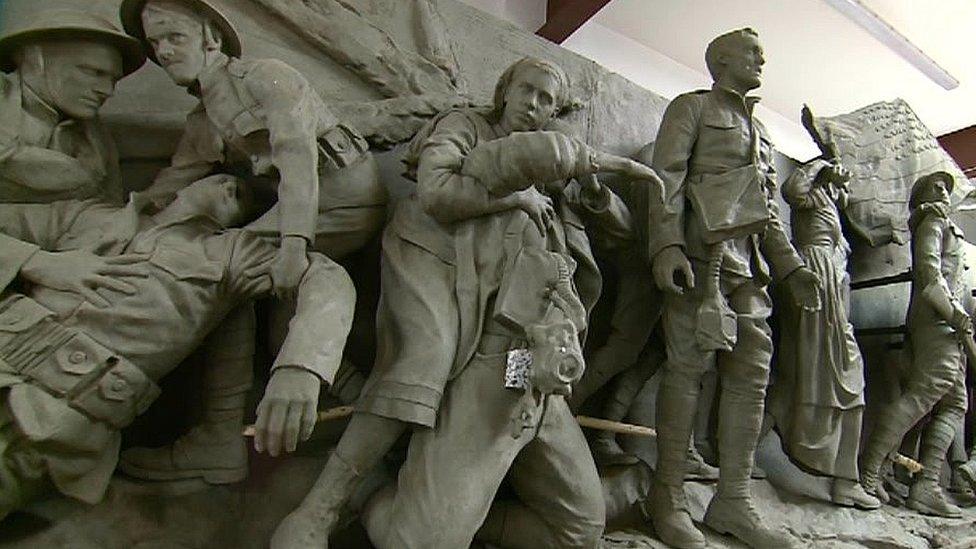
The completed sculpture will be erected and unveiled in Washington DC
The soldier is seen marching into battle and paying the physical, emotional and psychological price of warfare. He then begins his journey home, believing that he had fought the last of the great wars.
Tom Woodman-Povey, project manager at the Pangolin Foundry, said: "There's no doubting the power and the reach it has.
"The story is relatable, and not just to people that have a connection to WW1 through their grandparents and so forth, but any war. The story is the same."
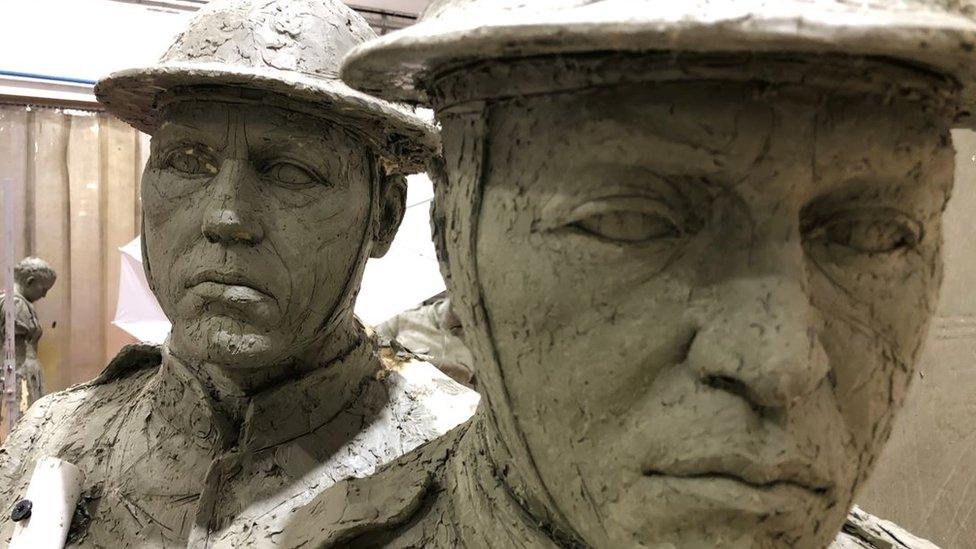
Each figure featured in the memorial took hundreds of hours to create
Mr Howard began the initial design work and planning more than a decade ago, but reached out to the Pangolin around five years ago to begin casting the bronze pieces.
To create the "epic" work actors were flown over from the United States. They were dressed in period clothing and posed in front of cameras.
The resulting 3D images were then roughly crafted from foam and clay and sent back to the US to be sculpted from life.
The sculptures were then shipped back to Stroud to be cast in bronze at the Pangolin.
"The relationship between artist and foundry is incredibly important to the success of any project they wish to pursue and make," continued Mr Woodman-Povey.
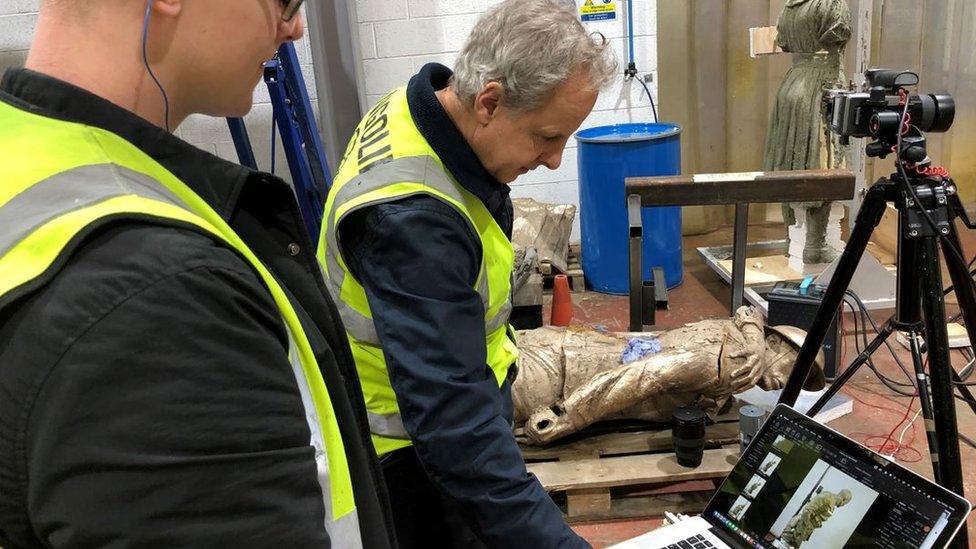
The clay sculptures are cast in bronze at the Pangolin foundry
"Pangolin certainly are well equipped and well experienced in global sculpture production and installation, and I think that's a big part of why the artist chose us."
Mr Howard said he hopes the completed piece will move people when they see it.
"I think that I found the right foundry globally to do a project that's this clean aesthetically and artistically so it has a meaning for people today that are not necessarily art lovers but just general people from the general populous, so they will have a visceral feeling when they look at it," he added.

Follow BBC West on Facebook, external, X, external and Instagram, external. Send your story ideas to: bristol@bbc.co.uk , external
Related topics
- Published2 January 2024
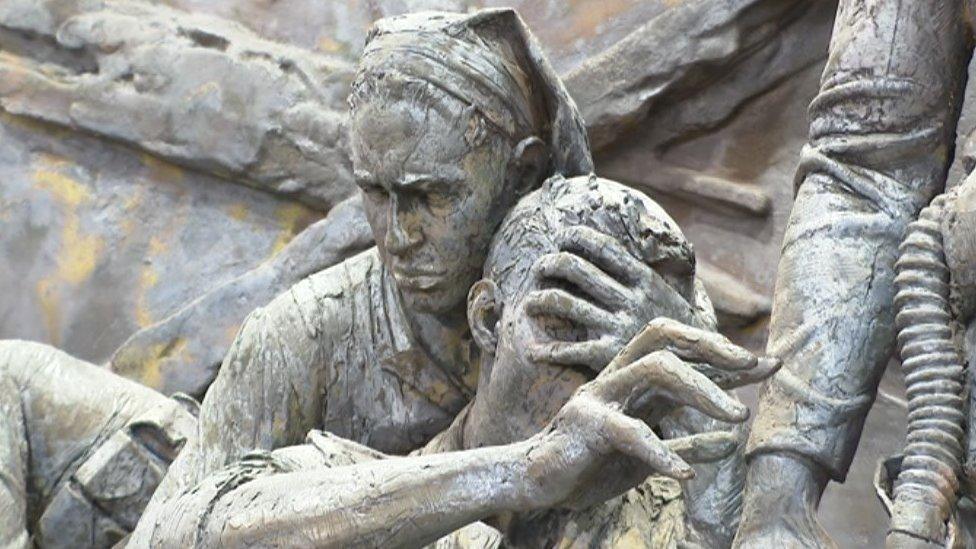
- Published4 May 2023
